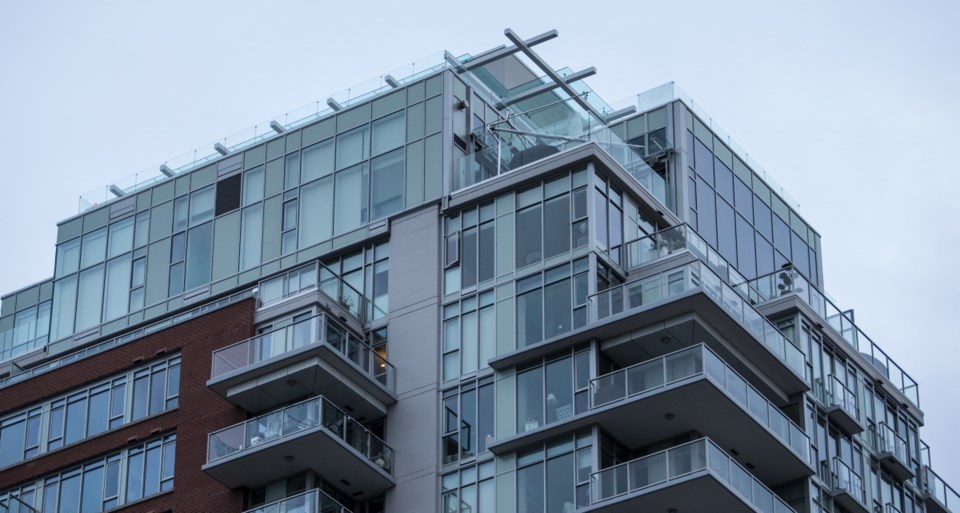In the absence so far of any better notions, here’s an idea about the condo insurance crisis that might be worth talking about. The concept would see strata councils walk away from gouging insurance companies, pool their resources — and their risk — and insure themselves.
Two smart readers pitched it to me separately this week. Another forwarded the idea to the government.
It’s offered here because preoccupation with the pandemic is going to take up all the room for a while. That shouldn’t subdue different ideas for other acute problems. So examine it, endorse it, or shoot it down, as you see fit.
It’s based on the fact that this isn’t the first insurance crisis. In the mid-1980s, local governments found themselves in almost exactly the same position that strata housing entities are in today. Premiums and deductibles suddenly rocketed up as much as 500% and coverage became very difficult to get. Cities and towns unable to renew coverage were facing major liabilities that could have bankrupted them.
Insurance companies had no solution, so the communities turned to each other for support.
They decided a self-insurance pooling program was needed. With some quick legislative changes by a co-operative provincial government, that led to the creation of the Municipal Insurance Association of B.C.
Current CEO Tom Barnes calls it “the greatest example of intergovernmental co-operation that you have never heard of.”
It’s a quiet outfit, technically it’s a reciprocal insurance pool, that insures about 170 B.C. municipalities. It coaches them on how to reduce risk, it fights lawsuits it considers unwarranted to the bitter end in order to keep rates down and it handles about 1,000 claims a year.
It returns about 7% of its premiums to member municipalities each year in dividends and predicted — at least until this week — those will continue for years to come.
In 30 years, municipalities have never had a premium hike higher than 10%, and some have dropped slightly.
It was started in order to get cheaper rates, but that’s not the main purpose. The key strategy is offering rate stability, by eliminating the peaks and valleys in the insurance market.
That volatility compounded B.C. condo residents problems, because rates were in a trough for several years. So it makes the sudden jumps this year that much steeper.
B.C. Finance Minister Carole James started looking at the problem several weeks ago. But the government is preoccupied with pandemic response and bracing for severe economic impacts. Whatever leeway she had to get the government deeply financially involved in this is disappearing by the minute.
So for anyone looking for an alternative model for insuring the tens of thousands of condo buildings, the Municipal Insurance Association of B.C. is a good place to start.
I hit Barnes cold with the readers’ idea on Friday: Could strata councils insure themselves the way municipalities do?
He said it wouldn’t be a simple project.
The number of municipalities is manageable, and they are a cohesive group because they all do essentially the same thing. The number of stratas in B.C. is so vast it would take major effort to get them all on the same page. And they range from four apartments in a common building to hundreds of residents living in a high-rise.
Stratas would have to commit totally to such a model over the long haul, and focus on stablizing premiums, not just getting cheap rates. They would need impeccable business cases and much more rigorous risk management. Any collective would be treated as a financial institution and be heavily regulated.
Barnes said if you substitute “municipalities” for “condos,” the current crisis looks exactly the same as what happened more than 30 years ago. The local governments found a way past it.
It’s up to condo residents to do the same.
Just So You Know: Covering the condo insurance crisis now feels like writing about a light chop on the Victoria waterfront, while a giant tsunami builds out in the strait.
But what else can we do, other than just carry on?
So consider the idea while you social distance; stay safe and help others however you can to get through the virus. If it’s worth checking out, think of it again when things get back to normal.



